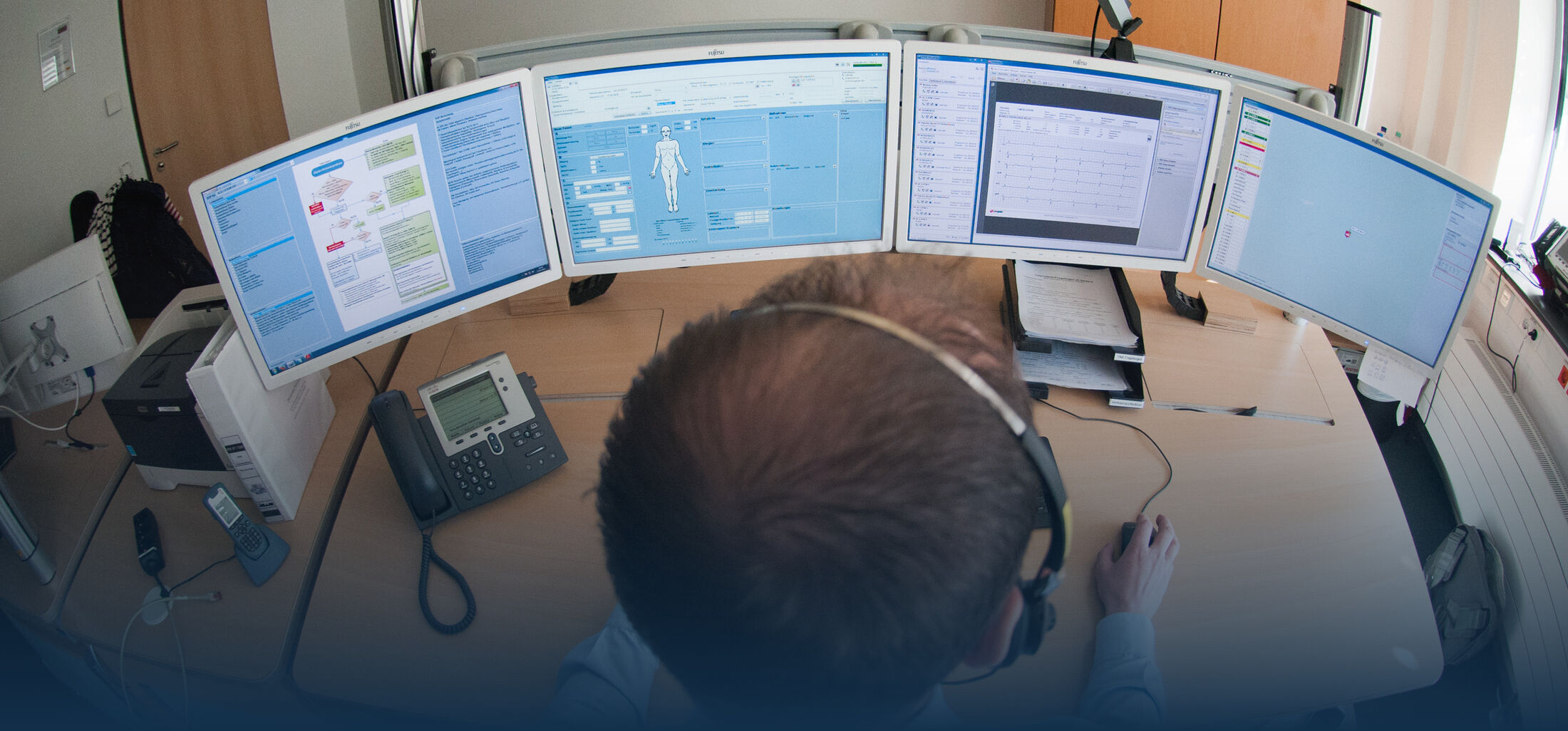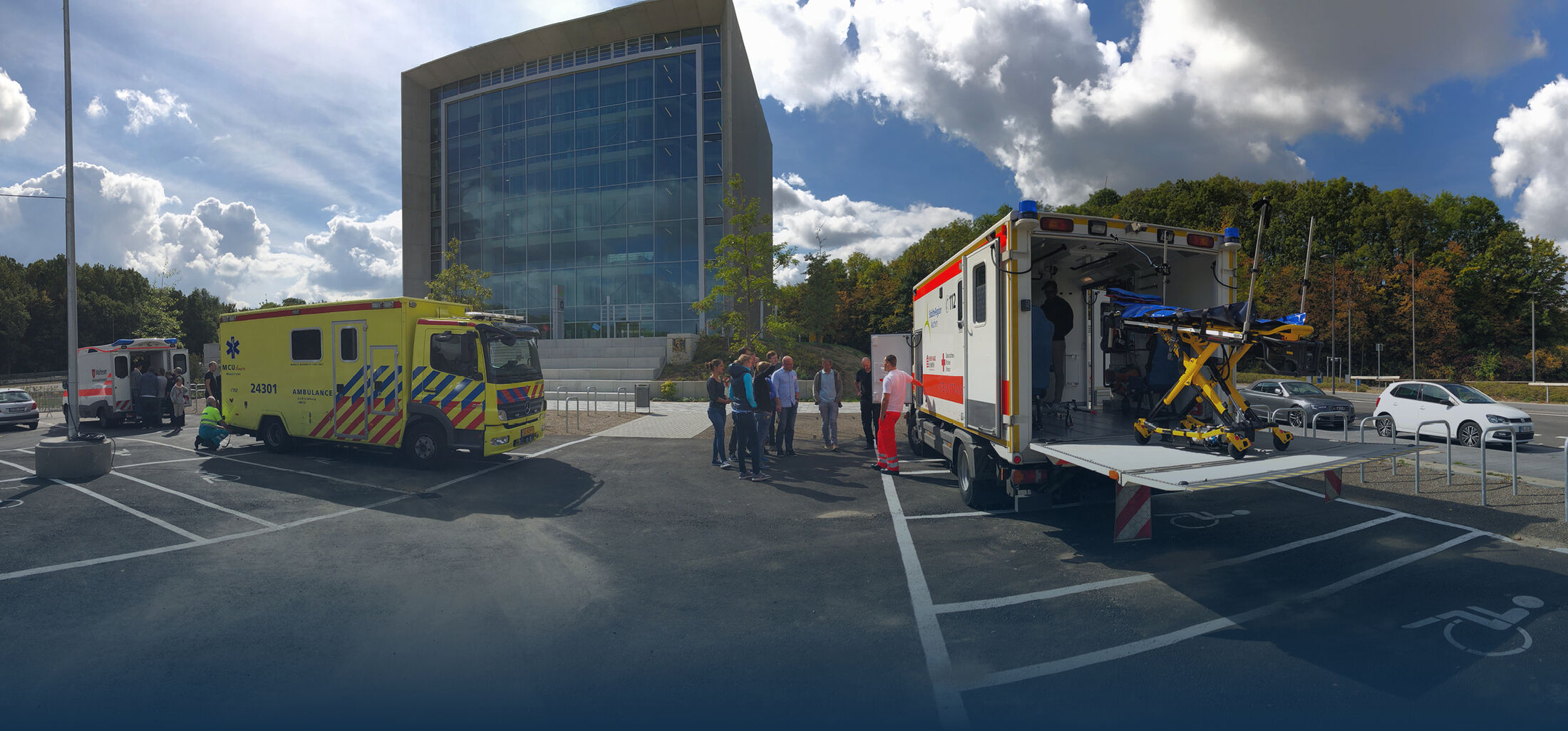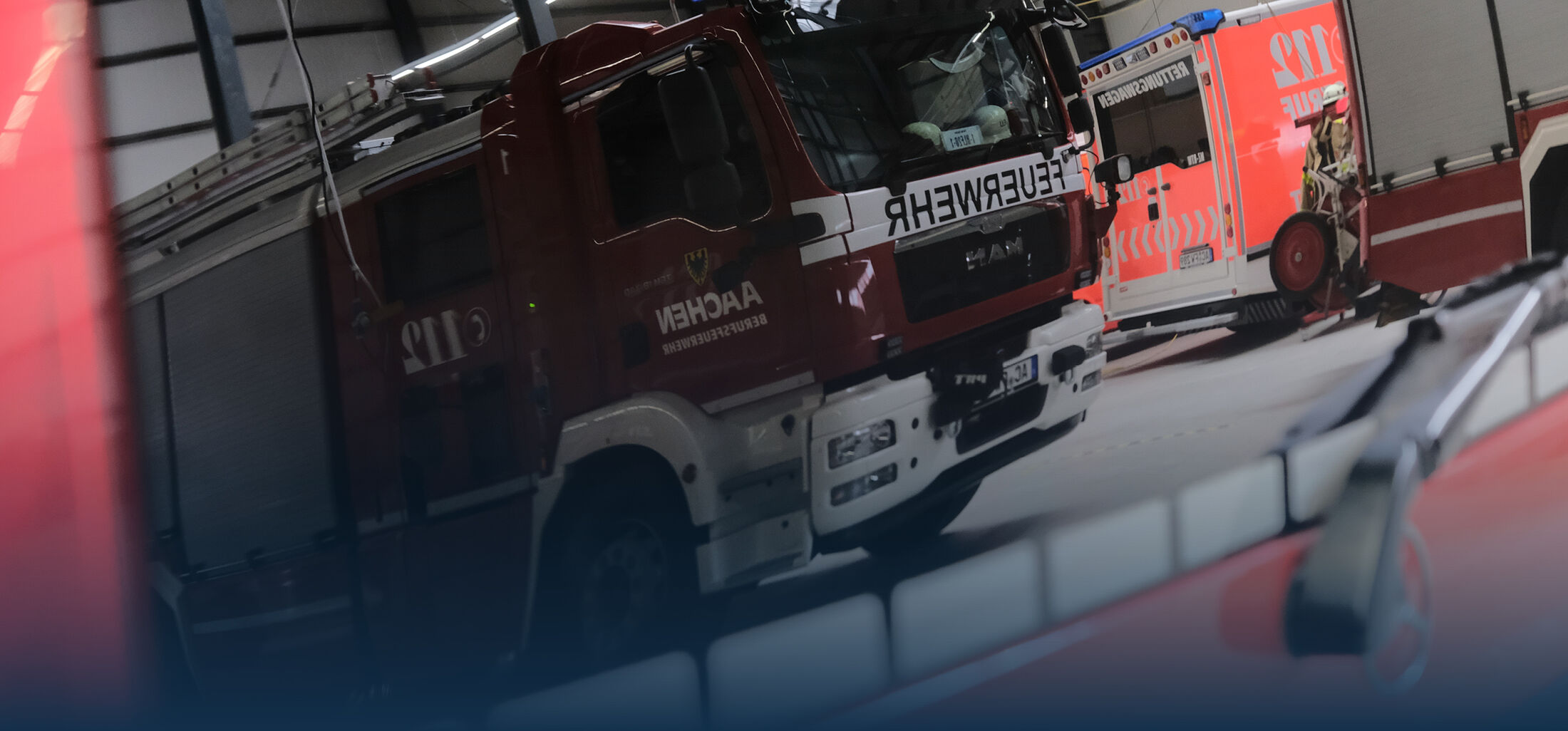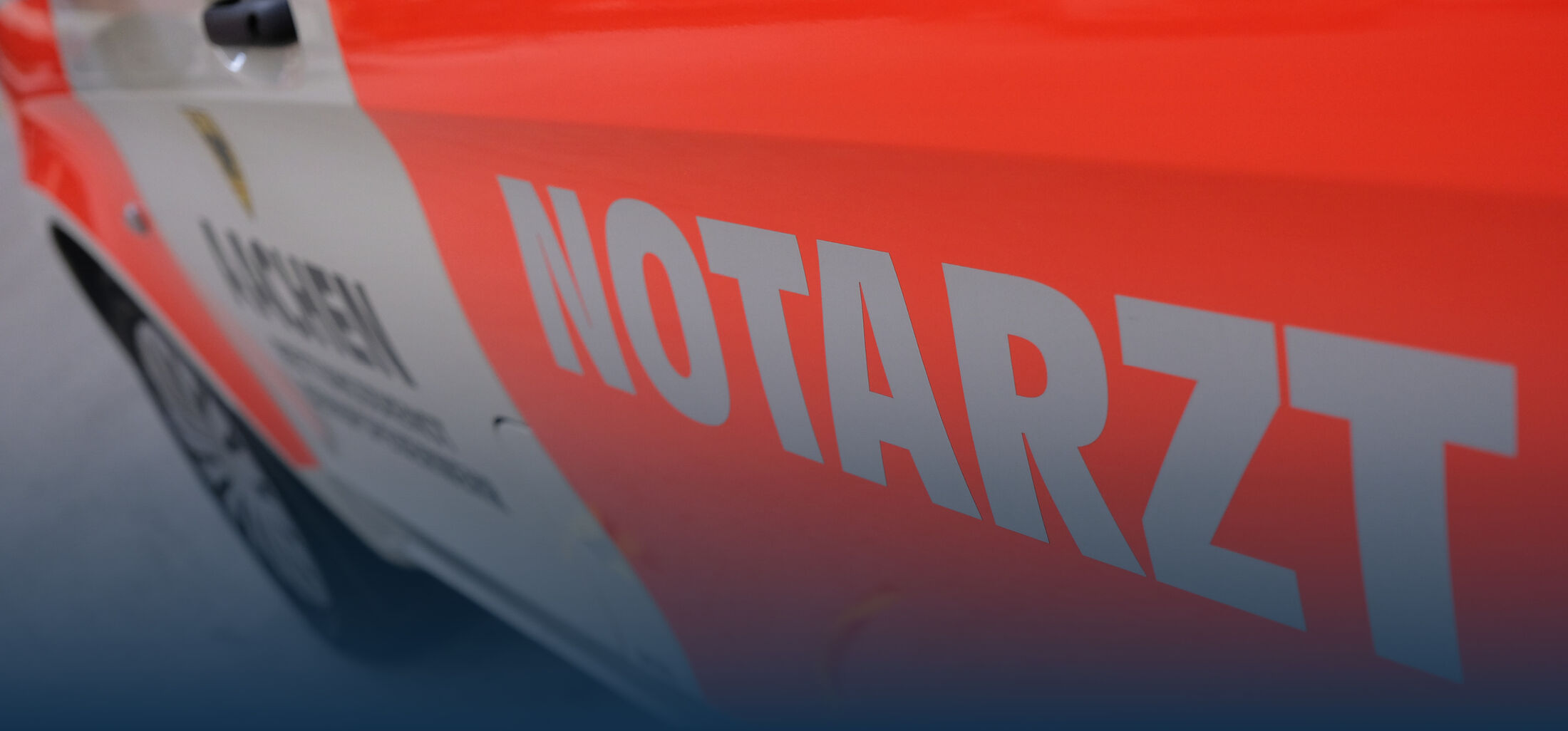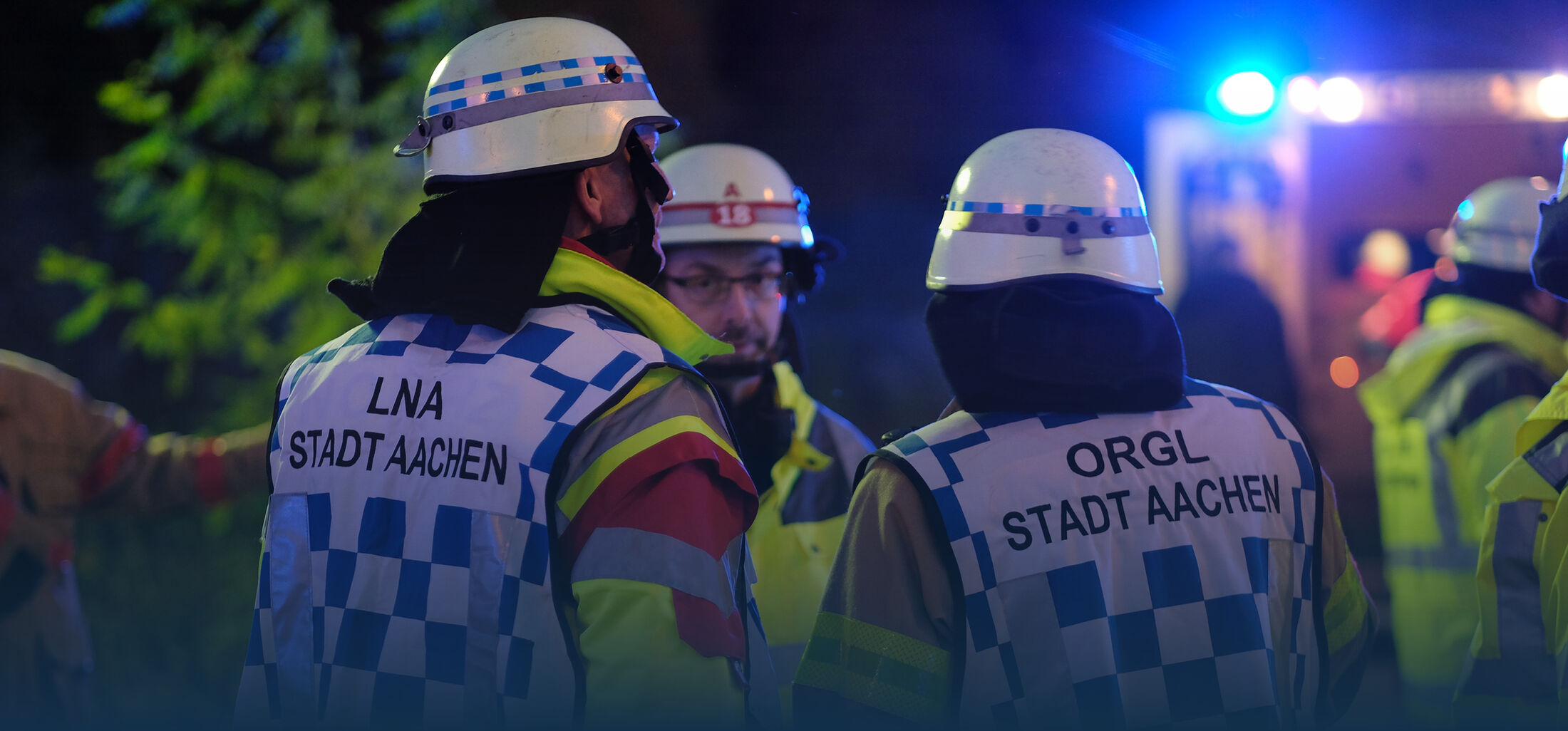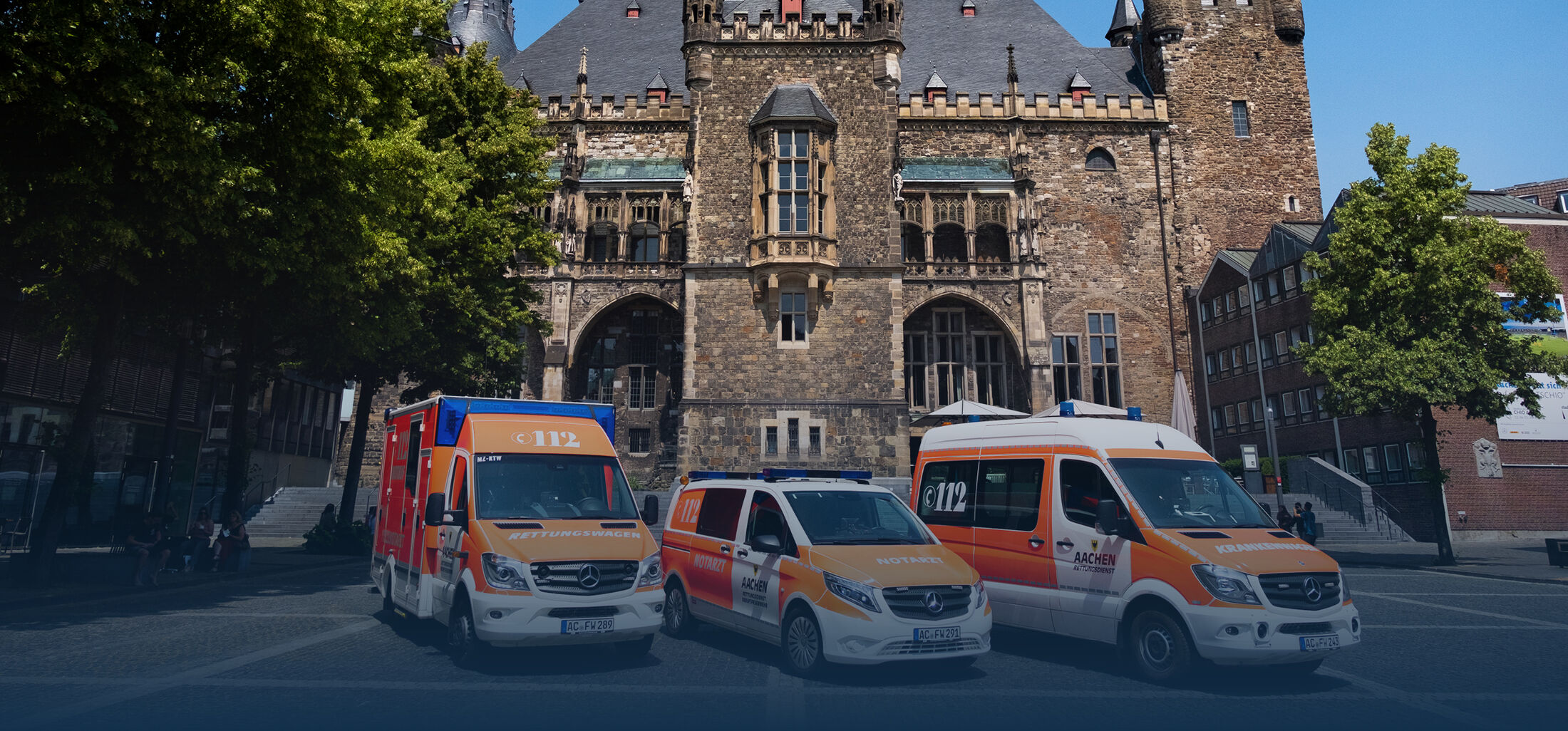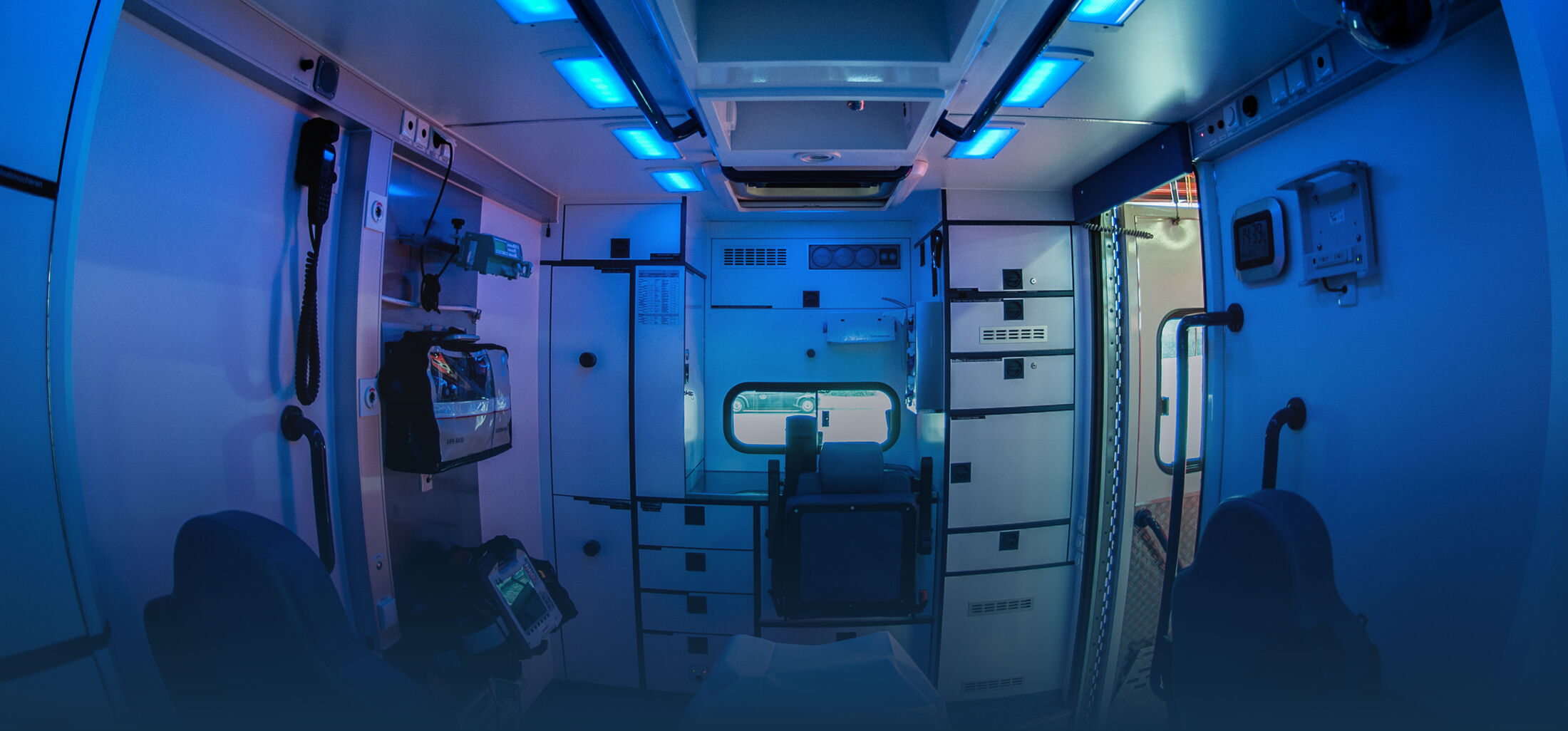Rescue and Emergency Medicine, Care Research
Der Telenotarzt (TNA) sieht sich in seinem Arbeitsalltag mit verschiedenen Herausforderungen konfrontiert. Zu diesen gehören beispielsweise ein stetig steigendes Einsatzaufkommen und regionale Unterschiede wie die medikamentöse Ausstattung der Rettungswagen oder die Erreichbarkeit und fachliche Ausrichtung von Krankenhäusern in der Umgebung.
Das Projekt KIT² verfolgt das Ziel, erstmalig einen Demonstrator für ein Entscheidungsunterstützungssystem in der prähospitalen Telenotfallmedizin zu entwickeln und einsatznah zu evaluieren, um diesen Herausforderungen zu begegnen. Dabei liegt der Fokus auf der (1) medizinischen, (2) taktischen und (3) strategischen Entscheidungsunterstützung, welche durch eine selbstlernende KI gewährleistet werden soll. Die drei Module beinhalten sowohl Verdachtsdiagnosen, als auch entsprechende medizinische und strategische Maßnahmen, die entweder vor Ort Anwendung finden oder den Transport in ein umliegendes Krankenhaus oder die eventuelle Nachforderung weiterer Einsatzmittel betreffen.
Neben der technischen Realisierung sind die Partizipation verschiedener Interessensgruppen und die Berücksichtigung ethischer, rechtlicher und gesellschaftlicher Normen und Risiken von zentraler Bedeutung. Langfristig soll die Nutzung der KI-basierten Entscheidungsunterstützung im Kontext des TNA-Systems die Qualität der Versorgung von Notfallpatienten steigern und zu einer erhöhten Patientensicherheit beitragen.
Das Projekt wird vom Bundesministerium für Bildung und Forschung (BMBF) mit einer Laufzeit von drei Jahren (09/2022 – 08/2025) gefördert. Am Vorhaben KIT² (Förderkennzeichen: 13N16430) sind neben dem Aachener Institut für Rettungsmedizin & zivile Sicherheit (ARS) der Uniklinik RWTH Aachen folgende Projektpartner beteiligt:
- umlaut telehealthcare GmbH
- Institut für Informatik, Technische Fakultät, Christian-Albrechts-Universität zu Kiel
- Palaimon GmbH
- Institut für Geschichte, Theorie und Ethik der Medizin, Uniklinik RWTH Aachen
5G-based comprehensivestrategytoimproveemergency care survival
Launch ofthe innovative 5URVIVE project
Optimizing care of patients in out-of-hospital cardiovascular arrest is a central component of the main topics and research of the Aachen Institute for Rescue Management and Public Safety (ARS). For this purpose, the research project 5URVIVE started on May 02, 2022. It is funded by the Ministry of Economic Affairs, Innovation, Digitalization and Energy of the State of North Rhine-Westphalia as part of the 5G.NRW funding competition. The project name reflects the goal of the project: A 5G-based comprehensive strategy to improve survival in emergency care.
Different possibilities of using a delay-free and area-wide data transmission by the new 5G mobile radio standard for optimizing the outcome of patients in resuscitation situations are to be researched and their integrative use in real deployment scenarios is to be simulated. Starting from an automated detection of circulatory arrest and the dispatch of the emergency call, via the alerting of rescue forces and the first responders on site, the drone-supported transport of defibrillators to the scene, the connection of the first responder to the tele-emergency physician via data glasses as well as the digital rescue lane for the faster arrival of the rescue forces, up to the pre-registration in the hospital, the various components of the rescue or survival chain are to be optimized using the 5G infrastructure. In addition to the ARS, the project partners include the city of Aachen, the Aachen University of Applied Sciences, the Institute for Road Research at RWTH Aachen University, umlaut GmbH, oculavis GmbH, SONAH GmbH and T-Systems GmbH.

5G Tele-rescueprojectpicksupspeed
The 5G Tele-rescue project, funded by the Federal Ministry of Digital Affairs and Transport (BMDV) with around 3.3 million euros, is concerned with researching the potential offered by the 5G mobile communications standard for integrating new devices and services into the tele-emergency physician (TEP) system. The TEP-system works in a complementary way to the "real" emergency physician and enables the forces working on site in the rescue operation to have an immediate, safe and reliable consultation with an emergency physician located in a TEP-center. Currently, this consultation takes place via a transmission unit that uses the LTE mobile radio standard.
Over the next three years of the project, the consortium of research institutions, users and companies will investigate various new use cases, taking advantage of the greater transmission bandwidth and speed of the new 5G technology. In the future, for example ultrasound examinations could be carried out in the ambulance and the results will be transmitted with other patient data to the TEP without delay so that initial diagnoses and immediate measures can be coordinated at an early stage. For this purpose, other medical devices for ventilation and resuscitation are to be integrated into the system in addition to the ultrasound device via a so-called "Internet of Things" (IoT) approach. It will also be possible to guide rescue workers externally during examinations with the aid of so-called "smart glasses" (data glasses). In very difficult cases, it will be possible to call additional specialists in a so-called "teleconsil".
The 5G campus network, which will be set up at the Bocholt site of the Westphalian University of Applied Sciences, will allow for testing the expanded system in an ideal mobile communications environment. In the second half of the project, the enhanced system will also be tested in a so-called "real lab" to check whether it also works "in the field" and how it could be implemented in the future in organizational, legal and financial terms. Among other things, the focus will be on interface management and data transfer to the TEP-center and the hospital.
The project partners involved (in alphabetical order):
- Aachen Institute for Rescue Management Public Safety (ARS)
- South Westphalia University of Applied Sciences
- Fire and Rescue Service Academy Bocholt (without own funding)
- L2R GmbH
- Westmünsterland Clinic
- District of Borken (District Development and Rescue Service) as "Lead Partner“
- Oculavis GmbH
- umlaut telehealthcare GmbH
- WEINMANN Emergency Medical Technology GmbH + Co. KG
- Westphalian University of Applied Sciences (at Campus Bocholt)
Mit 31 Expertinnen und Experten aus insgesamt 14 verschiedenen Fachgesellschaften und Organisationen wird unter Federführung der Deutschen Gesellschaft für Anästhesiologie und Intensivmedizin (DGAI) derzeit die neue Leitlinie „Telemedizin in der prähospitalen Notfallmedizin“ erarbeitet und durch das ARS koordiniert. Um dem Niveau einer evidenzbasierten Leitlinie (S2e-Leitlinie) gerecht zu werden, wird eine systematische Literaturrecherche durchgeführt, eine nach entsprechenden Kriterien strukturierte Sichtung und Bewertung der Literatur durchgeführt und Ausarbeitung von Empfehlungen vorgenommen. Die Fertigstellung ist für Dezember 2023 geplant.

fly4health - Initiative for medical support with unmanned aerial systems
The initiative fly4health attempts to gradually establish unmanned aerial systems for a wide range of medical needs in a long-term project. Be it a situation overview of the operation site, the transport of medical supplies between medical facilities or the direct delivery of relief supplies to the operation. The ARS supports this project as a cooperation partner with its expertise in science and practice.
